Open Source News
Cloudblog
424
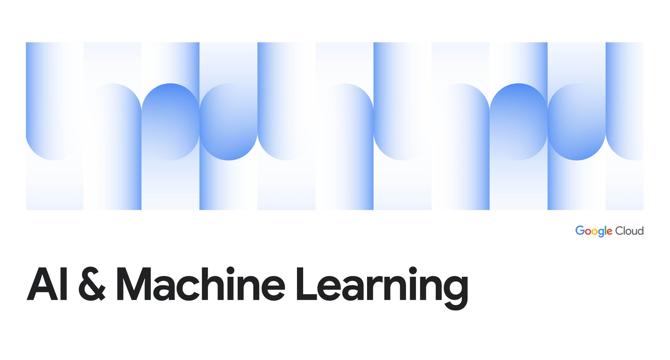
Image Credit: Cloudblog
Introducing the next generation of AI inference, powered by llm-d
- Efficient AI inference is crucial as the world moves towards deploying AI at scale, leading to the need for better processing power.
- Open-source inference engines like vLLM are being utilized to address these challenges, with full support across various Google Cloud platforms.
- A new project called llm-d is introduced, aiming at making AI inference more scalable and cost-effective through Kubernetes-native distributed and disaggregated inference.
- llm-d incorporates advanced serving technologies and aims at providing low-latency, high-performance inference by leveraging Google Cloud's resources and AI integrations.
Read Full Article
25 Likes
Medium
430
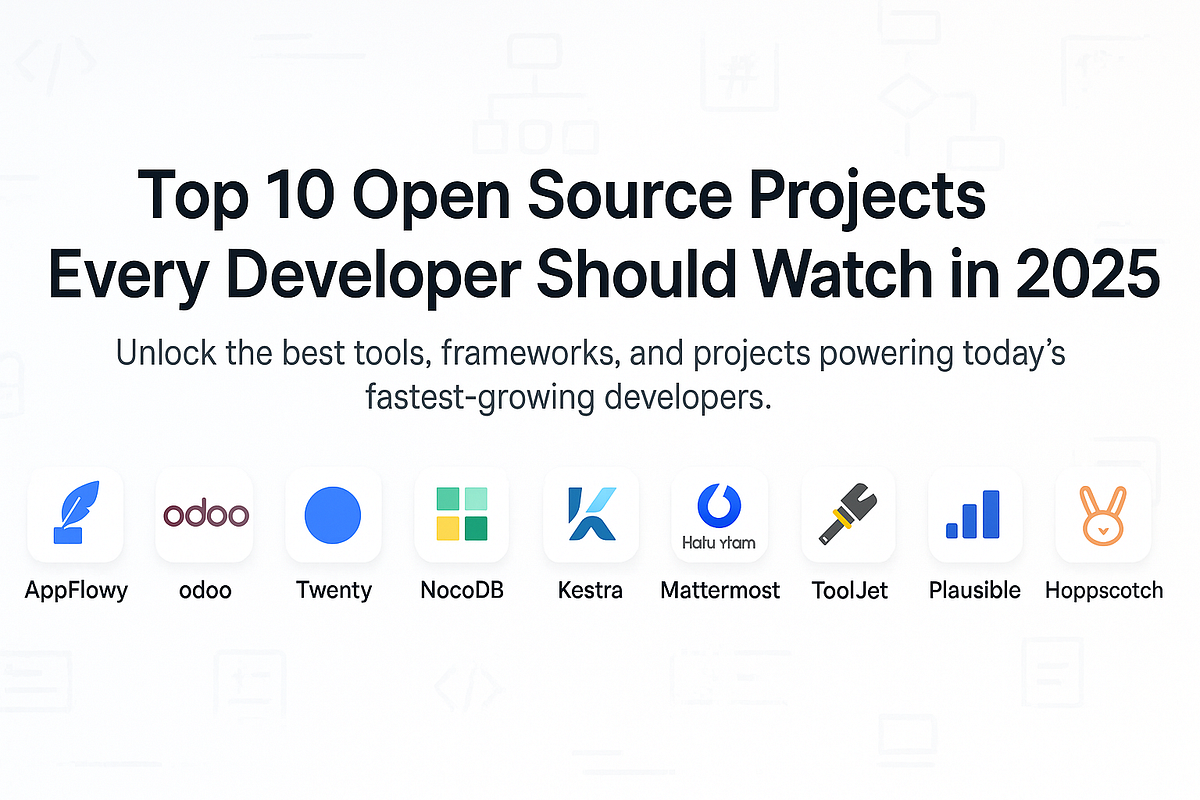
Image Credit: Medium
Top 10 Open Source Projects Every Developer Should Watch in 2025
- Diving into open-source projects is essential for developers to enhance their skills and streamline their workflow by leveraging existing work.
- Contributing to open-source projects enables coders to improve their coding abilities and save significant time.
- A curated list of valuable open-source repositories for developers in 2025 can provide direct utility, serve as study material, or inspire new ideas.
- Open-source repositories play a crucial role in modern software development by fostering faster innovation, facilitating learning, and delivering better tools for all users.
Read Full Article
25 Likes
Hackernoon
278

Image Credit: Hackernoon
Open-Source Data Catalogs: A New Chance to Implement Data Mesh
- Open-source data catalogs have revolutionized the implementation of data mesh architecture by simplifying data management across departments.
- Data mesh promotes decentralized architecture, allowing faster access to relevant data for various teams, akin to streaming services vs. traditional broadcast television.
- Key principles of data mesh include domain-oriented data ownership, treating data as a product, self-service data infrastructure, and federated computational governance.
- Open-source data catalogs like Polaris Catalog and Unity Catalog provide centralized metadata repositories, governance policies, data lineage tracking, and access controls that align with data mesh principles.
- Advantages of open-source data catalogs in data mesh architecture include cost-effectiveness, flexibility, community support, and enabling data observability.
- Implementing data mesh with open-source data catalogs involves assessing needs, trying out different tools, onboarding domains, defining governance policies, integrating with existing infrastructure, training teams, and maintaining the infrastructure.
- While data mesh offers speed and flexibility, organizations need to prioritize data security, privacy, and compliance when integrating these architectures.
- Open-source data catalogs have unlocked new opportunities for medium-sized organizations to optimize costs and prepare for future growth through decentralized data management.
- The community support and flexibility of open-source tools enable organizations to develop new plugins, unlock multiple use cases, and enhance data observability.
- Data mesh integration requires technical knowledge and might not be suitable for smaller organizations or those with on-premise setups or multi-cloud environments.
Read Full Article
16 Likes
AWS Blogs
27

Image Credit: AWS Blogs
AWS Weekly Roundup: Strands Agents, AWS Transform, Amazon Bedrock Guardrails, AWS CodeBuild, and more (May 19, 2025)
- Last week featured AI Week in Italy, and this week includes AWS Community Day in Zurich and AWS Cloud Infrastructure Day on May 22.
- Strands Agents SDK was introduced for building AI agents with ease, supporting various use cases and models.
- AWS Transform for .NET launched with new capabilities for modernizing .NET applications.
- Amazon Bedrock Guardrails now supports cross-Region inference for enhanced resilience during peak demand.
- AWS EC2 instances now support ENA queue allocation, optimizing network traffic management.
- New Amazon EC2 P6-B200 instances with NVIDIA Blackwell GPUs for AI training and HPC applications.
- AWS Control Tower introduces account-level reporting for baseline APIs.
- AWS CodeBuild introduces Docker Server capability for faster CI/CD pipelines.
- AWS CodePipeline now supports deploying to AWS Lambda with traffic shifting.
- Amazon Cognito introduces support for OIDC prompt parameter for user reauthentication.
Read Full Article
1 Like
Discover more
- Programming News
- Software News
- Web Design
- Devops News
- Databases
- Cloud News
- Product Management News
- Operating Systems News
- Agile Methodology News
- Computer Engineering
- Startup News
- Cryptocurrency News
- Technology News
- Blockchain News
- Data Science News
- AR News
- Apple News
- Cyber Security News
- Leadership News
- Gaming News
- Automobiles News
VentureBeat
255

Image Credit: VentureBeat
Why Microsoft Fabric has already been adopted by 70% of the Fortune 500 — and what’s next
- Microsoft Fabric is a unified data platform that aims to tackle enterprise data complexity by offering a common data layer across Microsoft's data and analytics tools.
- CosmosDB, Microsoft's NoSQL document database, is a headline addition to Microsoft Fabric and powers many high-profile AI applications.
- Microsoft Fabric now has over 21,000 paying customers worldwide, including 70% of the Fortune 500, showing rapid growth and strong adoption.
- Microsoft is integrating various database options into Microsoft Fabric, including Azure SQL and CosmosDB, to streamline deployment and management for organizations.
- Fabric enables organizations to deploy NoSQL databases like CosmosDB without the need to manage complex infrastructure, enhancing performance and reducing latency.
- Microsoft's Fabric strategy includes maintaining a highly performant cache and synchronization mechanism to ensure millisecond response times for AI applications.
- OneLake technology within Fabric stores the data, handling multiple data types and formats from SQL, NoSQL, and unstructured data in open source data formats.
- Microsoft is open sourcing technologies like DiskANN for vector search capabilities, contributing to the AI ecosystem and enabling developers to build high-performance applications.
- By unifying data products and leveraging open source standards, Microsoft Fabric eliminates data fragmentation and provides a unified architecture for various services.
- Enterprises leveraging Microsoft Fabric can focus on creating AI applications that deliver business value, surpassing competitors struggling with fragmented architectures.
Read Full Article
15 Likes
TechCrunch
420

Image Credit: TechCrunch
Microsoft open-sources a command-line text editor and more at Build
- Microsoft open-sourced a command-line text editor called Edit at Build 2025 conference.
- Open source software serves as market research and can lead to paid applications and services.
- Edit will allow developers to edit files in the command line via the 'edit' command to minimize context switching.
- GitHub Copilot in VS Code and Windows Subsystem for Linux (WSL) will also be open-sourced by Microsoft.
Read Full Article
25 Likes
VentureBeat
397

Image Credit: VentureBeat
Quantum Machines launches Qualibrate open source framework to speed quantum computer calibration
- Quantum Machines has launched Qualibrate, an open-source framework for calibrating quantum computers, reducing calibration time from hours to minutes.
- Qualibrate enables fast, modular calibration, fosters a global ecosystem for sharing calibration protocols, and provides a comprehensive solution for executing and sharing protocols across different quantum computing platforms.
- The framework transforms quantum calibration into a collaborative system, allowing researchers and quantum engineers to focus on quantum system logic rather than low-level details.
- Qualibrate's open-source nature and modular architecture allow for immediate sharing and validation of new calibration protocols within the quantum computing community.
Read Full Article
23 Likes
Insider
36

Image Credit: Insider
Marc Andreessen says the US needs to lead open-sourced AI: 'Imagine if the entire world — including the US — runs on Chinese software'
- Venture capitalist Marc Andreessen warns that the US needs to lead open-source AI to avoid ceding control to China in the global AI race.
- China has favored open-source models, while US tech giants have taken a more proprietary approach to AI development.
- The debate over open- and closed-source AI is intensifying amid US-China tech rivalry and concerns over technological sovereignty.
- Andreessen believes that open-source AI could become the global standard, shaping values embedded in AI models that will 'intermediate' key institutions like education, law, and medicine.
Read Full Article
2 Likes
Medium
242

Image Credit: Medium
Why open-source is essential for true Private AI
- Open-source models like BLOOM, Falcon, and Meta’s Llama family have shown the potential to compete with proprietary AI in scale and capability.
- Advancements like DeepSeek and Google’s Gemma models using Quantization-Aware Training enhance accessibility and efficiency of AI models.
- Open-source AI communities can innovate and compete with proprietary models, providing architectural guarantees for data privacy and security.
- Fine-tuning open-source models offers enterprises control over their AI, ensuring data privacy and ownership of resulting models.
- Using public APIs for fine-tuning risks data privacy leakage and vendor lock-in, especially for sensitive data in regulated industries.
- Fine-tuning with public AI providers can lead to exposure of proprietary data and lack of ownership of the resulting fine-tuned model.
- Fine-tuning open-source models within your infrastructure preserves data privacy, security, and ownership of artifacts, IP, and the process.
- Open-source models offer flexibility, control, and freedom but require responsible sourcing, evaluation, and governance to avoid bias and risks.
- Trust in the source of open-source models is crucial, and enterprises should vet and approve models from reputable organizations.
- Engaging with upstream communities, contributing code/docs, and participating in open-source development accelerates innovation and builds goodwill.
Read Full Article
14 Likes
Medium
297
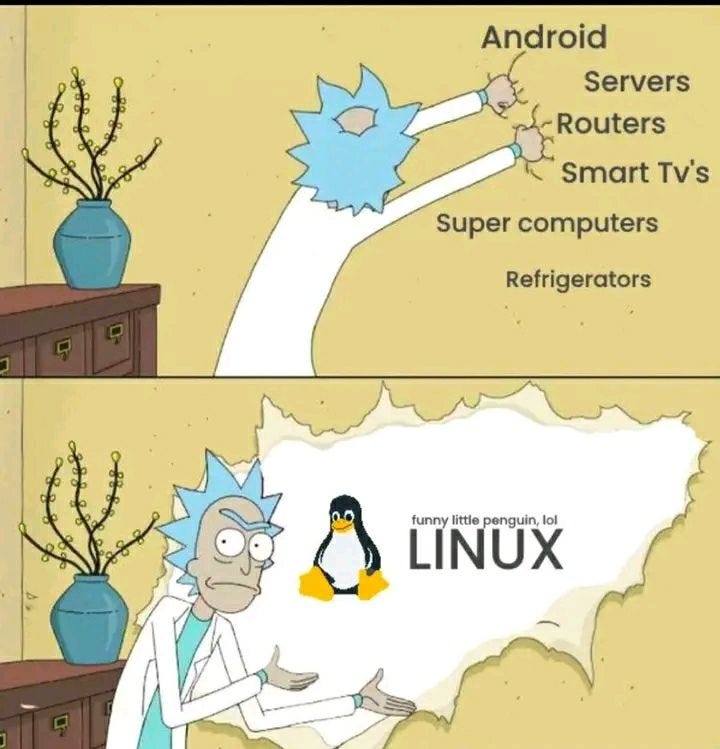
Image Credit: Medium
A Path Down Linux Lane
- Linux initially relied on CLI but later introduced GUIs like KDE Plasma and GNOME to enhance accessibility.
- The flexibility of Linux distros allows users to choose between CLI and GUI interfaces.
- Linux dominates in server, cloud, supercomputers, IoT, and embedded systems, showcasing its versatility and reliability.
- With its reliability, security, and strong community support, Linux is a worthwhile choice for both beginners and tech enthusiasts.
Read Full Article
17 Likes
Medium
128
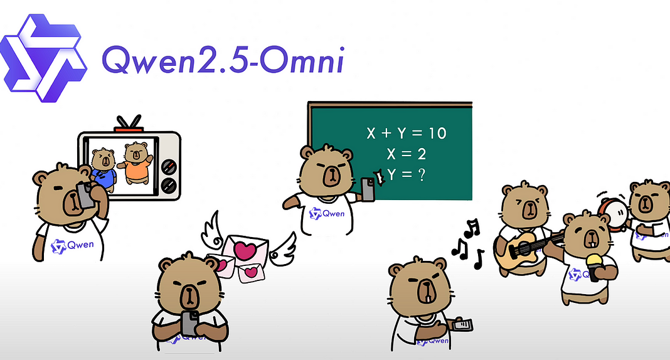
Image Credit: Medium
Quantized Qwen2.5-Omni-7B Just Dropped and It’s FREE
- The Qwen2.5-Omni-7B is a 7-billion-parameter multimodal AI model developed by Alibaba’s Qwen team, offering enhanced capabilities across text, speech, and vision modalities with quantization in formats like BF16, GPTQ, and AWQ.
- Quantization optimizes the model for performance and memory efficiency, reducing its memory footprint significantly for various inference durations and GPU resources, making it suitable for consumer-grade hardware.
- The open-source model is available on platforms like Hugging Face and ModelScope, enabling free download, fine-tuning, and deployment by anyone, with detailed performance benchmarks across different evaluation tasks and datasets.
- The quantized versions of Qwen2.5-Omni-7B show competitive performance in automatic speech recognition, text-to-speech, text-to-text, speech-to-text, and multimodal tasks, offering efficiency gains with slight accuracy trade-offs.
- The AWQ version in particular stands out for its memory efficiency, closely approaching BF16's accuracy while using significantly less memory, making it a strong choice for developers prioritizing both efficiency and accuracy.
- The release of quantized Qwen2.5-Omni-7B democratizes access to powerful multimodal AI models, providing high performance across various modalities and lowering the entry barrier for developers via free availability on platforms like Hugging Face and ModelScope.
- This release signifies a significant advancement in open-source AI, offering developers flexibility and power in building applications that require text, speech, and vision processing, making it a valuable asset for a wide range of projects.
- Download Qwen2.5-Omni-7B today from Hugging Face or ModelScope to leverage its cutting-edge technology in your projects, benefiting from its low memory footprint, high accuracy, and versatile capabilities at no cost.
Read Full Article
7 Likes
Siliconangle
13
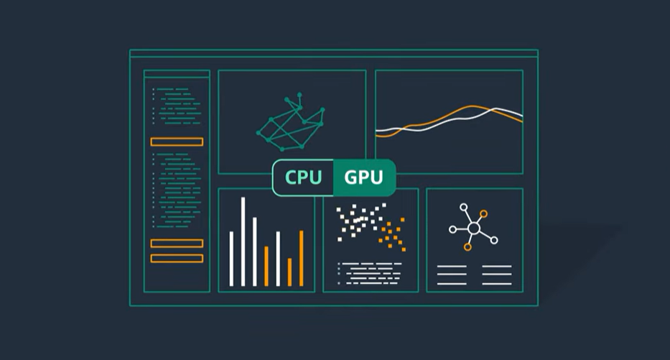
Image Credit: Siliconangle
AWS open-sources Strands Agents SDK to ease AI agent development
- AWS has open-sourced Strands Agents SDK, a toolkit for developing AI agents.
- Strands Agents SDK allows integration of large language models and supports tools like Amazon Bedrock and Anthropic PBC's API.
- The SDK includes prebuilt tools for tasks and managing data processed by AI agents.
- AWS plans to enhance Strands Agents SDK with support for multi-agent collaboration and data orchestration in the future.
Read Full Article
Like
Medium
352

Image Credit: Medium
How I Built a Local AI Assistant for Obsidian — No Cloud, No API Keys
- Obsidian has become a popular tool for managing knowledge in a local-first manner.
- Many existing AI integrations with Obsidian require API keys and rely on cloud services, compromising privacy and control.
- To address this, a local AI assistant was developed, focusing on privacy, control, and offline usability.
- The project aimed to create a fast, offline AI assistant for note-based workflows without cloud dependencies.
- The assistant is implemented as a Python CLI tool that loads a local model and executes queries locally.
- Installation is straightforward, requiring only Python 3.6+ and pip, with no need for internet connectivity post-setup.
- Use cases include local note summarization, semantic search, writing assistance, and offline research support.
- The assistant respects privacy, operates instantly, is hackable, and works in air-gapped environments.
- Challenges in development included managing model size, memory execution, antivirus concerns, and balancing simplicity with functionality.
- Future plans include adding features like ChromaDB-powered search, model flexibility, prompt templates, an Obsidian plugin bridge, and a GUI launcher.
Read Full Article
21 Likes
Marktechpost
178

Salesforce AI Releases BLIP3-o: A Fully Open-Source Unified Multimodal Model Built with CLIP Embeddings and Flow Matching for Image Understanding and Generation
- Multimodal modeling aims to understand and generate content across visual and textual formats, integrating image recognition and generation into a unified system to enhance interactions.
- BLIP3-o, developed by Salesforce Research in collaboration with academic institutions, introduces a family of unified multimodal models using CLIP embeddings and a sequential training approach for image understanding and generation.
- The model leverages CLIP embeddings and a diffusion transformer for image synthesis, employing a dual-stage training strategy that enhances alignment and visual fidelity.
- BLIP3-o outperforms in various benchmarks, achieving top scores in image generation alignment, reasoning ability, and image understanding, showcasing its superiority in subjective quality assessments.
Read Full Article
10 Likes
Insider
4
Image Credit: Insider
Meta's Llama has reached a turning point with developers as delays and disappointment mount
- Meta's Llama 4 models faced a lukewarm start with limited adoption compared to previous models, leading to questions about its relevance among developers.
- At Meta's LlamaCon conference, developers expressed disappointment as expected advanced models weren't announced, settling for traditional models instead.
- The release of Llama 4 Scout and Llama 4 Maverick, with a delayed Llama 4 Behemoth, struggled to compete against alternatives like DeepSeek's V3 and Qwen.
- While Meta claimed state-of-the-art performance, criticism grew around the fading momentum of Meta's open-source models in technical performance and mindshare.
- Competitors like DeepSeek, Qwen, and OpenAI are outpacing Meta in reasoning, tool use, and real-world deployment, prompting doubts about Llama's progress.
- Meta reassured its commitment to improving its models and features based on community feedback, but concerns linger over Llama falling behind in the AI landscape.
- While Llama 3's launch in the past was widely praised for its breakthrough, Llama 4's reception has been less enthusiastic, raising questions about Meta's direction.
- Criticism of Llama 4 extended beyond technical evaluations, highlighting its diminished tool-calling capabilities for agentic AI compared to rival models like OpenAI.
- Llama's absence of a reasoning model and decline in developer interest indicate a loss of pace in the AI market, despite its continued presence in various AI applications.
- Industry experts note that while Llama may be losing ground to proprietary models, it still holds value for enterprises seeking open-source solutions for specific tasks at a lower cost.
- Despite competition from proprietary models, Llama's role remains relevant for many developers due to its cost-effectiveness and adaptability to diverse use cases within AI applications.
Read Full Article
Like
For uninterrupted reading, download the app